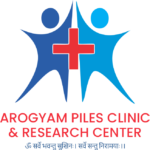Pilonidal sinus, a condition most prevalent among young adults, involves the formation of a small cyst or abscess near the tailbone that can be painful and requires medical attention. Dr. Vinay Kumar, a distinguished Proctologist and Kshar Sutra Surgeon at Arogyam Piles Clinic and Research Center in Mohali, Chandigarh emphasizes the crucial role of early identification in successfully managing this condition. Ignoring the symptoms, which may include pain, swelling, and infection, often leads to unnecessary complications.
Role of Ignorance in Complications
Dr. Kumar notes that a common pitfall for many suffering from pilonidal disease is the failure to recognize or acknowledge the seriousness of their symptoms. This delayed response can lead to severe infections, increased risk of chronic inflammation, and the potential for more complex surgical needs down the line. Awareness and prompt action are pivotal in preventing the disease’s progression.
Insights by Dr. Vinay Kumar about complications of Untreated pilonidal cysts
With years of experience in the field, Dr. Kumar has observed firsthand the benefits of early intervention. He points out that a pilonidal sinus, while treatable, can become a recurring issue if not properly addressed. The treatment ranges from antibiotics to control infection to minor surgeries that remove the cyst. In advanced cases, more extensive procedures may be necessary, which underscores the importance of seeking medical advice at the first sign of trouble.
Consequences of Untreated Pilonidal sinus
Chronic Pain: Untreated pilonidal cysts can cause persistent and worsening pain over time.
Repeated Infections: Each infection can become more difficult to treat than the last.
Increased risk of severe abscesses: These may require more invasive surgical interventions.
Potential for systemic infection: If bacteria spread from the cyst into the bloodstream.
Cancer : in some cases it is observed that untreated pilonidal sinus causes sqamous cell carcinoma.
Potential Treatments for Pilonidal Sinus and Outcomes
According to Dr. Kumar, the treatment strategy should be tailored to the individual’s condition, with factors such as the size of the cyst, the presence of infection, and any previous occurrences considered. Non-surgical treatments like antibiotics and laser therapy may be effective for early-stage pilonidal sinus. However, surgeries might be inevitable for chronic or complex cases. The good news is that when tackled early, the prognosis after treatment is generally very favorable. But all above mention treatment is having risk of recurrence to avoid this complication we at Arogyam Piles Clinic and Research Center advocates Kshar Sutra treatment in Pilonidal sinus which is having highest success rate and nil complication. Kshar sutra is pilonidal sinus treatment without surgery in which a medicated thread is placed inside sinus tract to remove it from its root.
The Importance of Early Intervention
In conclusion, Dr. Vinay Kumar stresses the significance of early detection and treatment of the pilonidal sinus to mitigate the risks associated with its progression. He advocates for individuals to seek medical advice upon noticing symptoms, emphasizing that timely intervention can prevent complications, minimize the need for surgical procedures, and lead to a quicker recovery. In essence, understanding and addressing a pilonidal sinus at its onset can profoundly impact one’s health and wellbeing.




